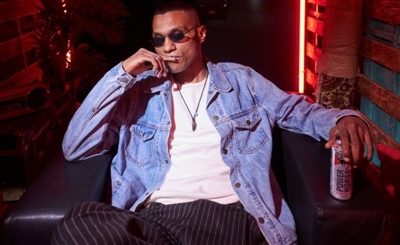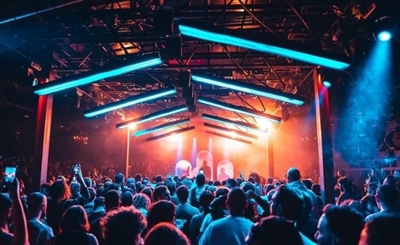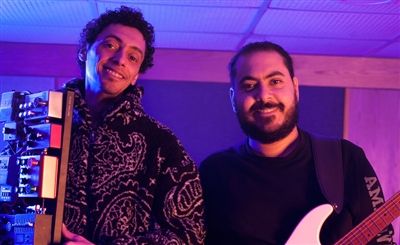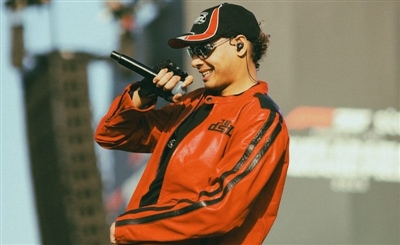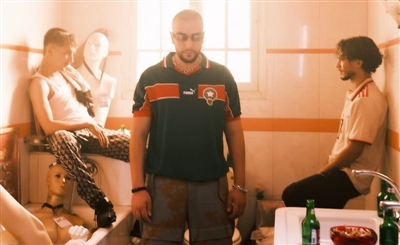Ethereal Global Sound of German DJ Elias Doré
We talked to Elias Doré after his recent gig in Cairo about how Amr Diab inspired the German DJ to pursue a career in the electronic music industry, what he thinks about the Middle Eastern scene and how he sees the future of the techno capital of Berlin.
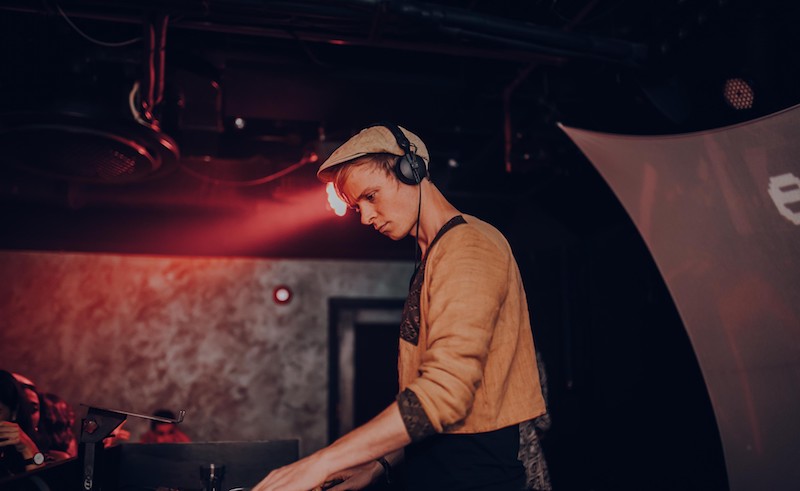
Having lived in Berlin for the past four years, I couldn’t have been more excited when I discovered Elias Doré’s name on the line-up for Cairo Jazz 610 back on November 29th. The multifaceted DJ is not only at home in some of Berlin’s most beautiful clubs but has been busy attending festivals all summer. In fact, if you ask the opinion of my friends who have also been busy “festivaling” the summer away, one thing they can agree on is that by far nothing has touched them as much as Doré's closing set at the Atlantis floor of the cozy German festival Bucht der Träumer, resting in their memories as the soundtrack of a warm summer.
<iframe width="100%" height="166" scrolling="no" frameborder="no" allow="autoplay" src="https://w.soundcloud.com/player/?url=https%3A//api.soundcloud.com/tracks/489219378&color=%23ff5500&auto_play=false&hide_related=false&show_comments=true&show_user=true&show_reposts=false&show_teaser=true"></iframe>
Hey Elias, so how did you end up here? What’s the story behind Elias Doré?
I was kind of always in love with making music. My teenage and subsequent years were filled with various instruments and band experiences. I was always playing the piano, sometimes more, sometimes less. At around 15 years old, I first picked up the bass guitar to then later play in a ska/reggae/rock-band. This was followed by playing the keys in a reggae band, then for a few months, while living in Dakar, playing the saxophone in a Senegalese Afrofunk Band and finally the
saxophone in a Balkan/Klezmer/Gipsy combo in London while studying there for my masters, which brings me after this long intro to the actual answer.
While studying at SOAS University in London, which is a beautifully diverse and multicultural place, I found that while there was an amazing variety of musical influences, one thing that was badly under and misrepresented there was thoughtful, melodic electronic music. None of my friends could really relate to my love for electronic music and mostly thought of monotone stomping beats without melody when they heard the word "techno". So one day, I decided to just get some equipment and try myself out as a DJ, just to bring some of the music that I enjoyed to my university and friends. I ended up playing my first gig on a Wednesday night in the university student bar. There were some people, but not big crowd, and while I tried to set the mood, a student from the Middle East came to me, telling me that he had just gotten engaged and asked if I could play one song for the couple; it was called "Habibi Ya Nour el Ain". I Youtube-played it straight away, the two went absolutely crazy over it, getting everyone up from their seats, and after that song I followed up with some digital cumbia and Berlin electronica - and the night ended up with people dancing on the tables, becoming a massive party on a random Wednesday night. After that I thought - well, maybe I'm actually good at this, and then one podcast lead to another, which lead to a gig here and there, which lead to bigger gigs and festivals.
Today I feel blessed and grateful for having already had the chance to play in so many beautiful places for amazing crowds and getting to know so many musicians I highly respect and admire. Overall it's just been a crazy beautiful ride so far.
<iframe width="560" height="315" src="https://www.youtube.com/embed/nc3bnJQabHI" frameborder="0" allow="accelerometer; autoplay; encrypted-media; gyroscope; picture-in-picture" allowfullscreen></iframe>
If each of your sets tells a story, which story did you tell in Cairo?
I took over for a very energetic live act from France, Pandhora, so it was quite an intense ride in the beginning, which I then tried to maneuver into smoother waters around the middle, again building up more tension, energy and drive towards a peak, resolving at the end into moments of bliss and fluff to guide people gently into the end of the night.
What do you know about the electronic scene in the Middle East? Do
you have a certain perception?
I feel that it has been growing a lot in recent years. More and more artists are playing there and I really feel a strong connection to the crowds in the Middle East. I think many people in Tunisia, Egypt and other countries in the region really enjoy my approach to music and the more melodically oriented artists and genres of electronic music. Compared to, for example the Balkans or many regions in Asia, I have the feeling that the scene in the MENA region is already quite well developed and people have very distinct tastes and preferences - knowing exactly what they like and what they don’t.
If you could have invited anyone to play B2B with you in Cairo Jazz, who would it be?
That question is so hard, but I guess it would have been my hermano Gabriel Belmudes from Canada/Brazil. A true friend and incredibly talented musician with whom I share a lot of musical preferences, ideas and visions.
Do you think your sound is inspired by Middle Eastern tunes?
Oh it for sure is, but not only the Middle East - also African sounds and cultures, Asian influences and many others. I think my time at the School of Oriental and African Studies in London as well as my travels and time in Senegal really impregnated me heavily in that regard. However, I always try to use those influences with moderation, interweaving them with spheric and more trippy elements and songs in order to form a more complex picture than just playing which might feel to some like one large loop of bongo/duduk/darbouka-infused songs.
What is your current favorite track?
Also a very difficult question. One song that I certainly have been enjoying a lot is Budakid's "Freedom of Movement" on my home label of Rebellion der Träumer. It is extremely crisp and clear in its production and has an uplifting spirit and energy that is very intense, in a good way.
Electronic music should …
...bring people together in peaceful and ecstatic moments of pure joy.
You are originally from Berlin and are still based in the so called “techno capital”. Do you still think that Berlin is the heart of the underground techno scene? Is Berlin even underground anymore compared to rising cities of the scene like Leipzig, Kiev or Tbilisi for example?
Well, Berlin certainly has become much more well known internationally and is very much obviously on the radar of every techno lover nowadays, compared to the '90s or early 2000s. I myself started going out into the Berlin nightlife around 10 years ago, so I have not been part of those early years, but even in those years since around 2008, I noticed a change. Many underground clubs have had to close in that time, free spaces have become increasingly rare, free and loud open air areas anywhere in the city have almost disappeared - they were very normal just a few years ago - and established clubs have become more and more 'organized', and in some cases commercialized.
This sounds a bit more bleak than it's meant to - the developments definitely weren't easy and ideal for the club scene in Berlin but this place is still one of the absolute best for me, when it comes to quality and quantity of the parties. The clubs have high quality lineups almost every weekend, the crowd is very knowledgeable and passionate, and the extended times of the parties, sometimes extending over several days, are also something I wouldn't want to miss. For the other cities, I have heard amazing things about them all, but except for Leipzig where I've played a few times, I have not yet had the chance to visit them.
What does the future hold for you?
I will be playing in Mexico and Guatemala in January and February for the first time, so I am very much looking forward to that. 2019 will also see several releases of our own productions as well as collaborations on various labels. Really excited for what's to come. Thank you for those interesting questions!
Follow Elias Doré on Facebook and Instagram.
- Previous Article Getting Abyusif
- Next Article 23 Must-Watch Middle Eastern Music Documentaries



